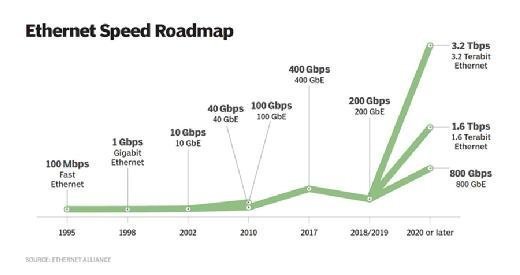How to Choose the Right Internet Plan Based Upon Megabits Per Second
How to Choose the Right Internet Plan Based Upon Megabits Per Second
Blog Article
Optimize Your Web Experience: Why Megabits Per Second Issue
In today's increasingly digital landscape, comprehending megabits per second (Mbps) is crucial for maximizing your web experience. Several users remain unsure concerning their real needs and the potential effect on their web efficiency.
Recognizing Megabits Per Second
In today's electronic landscape, many individuals may discover themselves astonished by the term "megabits per second" (Mbps), which works as a critical measure of internet speed. Mbps measures the rate at which data is moved over a net link, giving a tangible figure that can help users assess their online experience.
Moreover, interpreting Mbps includes comprehending the distinction in between megabytes and megabits. While a megabit is one-eighth the dimension of a megabyte, individuals frequently confuse these terms when examining their internet plans. A 50 Mbps connection relates to roughly 6.25 megabytes per second in real download rate.
Ultimately, realizing the concept of Mbps empowers consumers to make educated decisions when choosing access provider, ensuring they select a plan that meets their particular requirements.
How Mbps Effect Internet Tasks
A link speed of 25 Mbps can dramatically influence how users involve with numerous online tasks. For informal surfing and streaming, this rate typically gives an acceptable experience. Customers can pleasantly stream video clips in standard meaning, participate in social media sites, and search web sites without obvious lag.
Nevertheless, as the needs of online activities increase, a 25 Mbps connection may drop brief. Tasks such as high-definition streaming, on-line video gaming, and video conferencing need more bandwidth. As an example, streaming in 4K resolution normally demands a minimum of 25 Mbps per stream, which can lead to buffering if multiple devices are connected simultaneously.
Additionally, on the internet gaming can be adversely affected by lower speeds, leading to latency concerns that hinder gameplay. Video clip conferencing applications often need steady connections to keep high quality, and a 25 Mbps link can battle under hefty usage.
Determining Your Required Mbps
Recognizing your details net demands is crucial for establishing the ideal Mbps for your family or business. To achieve optimum efficiency, think about the number of tools attached to your network, the tasks executed, and the data transfer needs linked with each job. For instance, streaming high-definition video clip usually requires 5-25 Mbps per tool, while on-line video gaming might need 3-6 Mbps for a seamless experience.
Furthermore, if several individuals participate directory in data-heavy tasks at the same time, you might require a greater Mbps to accommodate this usage. Performing a stock of your tools-- smart devices, tablets, laptops, and wise Televisions-- will aid you gauge your complete bandwidth needs.
Additionally, think about the types of applications your home or company uses. Video conferencing, large data downloads, and cloud-based services demand even more transmission capacity, affecting your Mbps needs significantly.
Choosing the Right Net Plan
Picking the appropriate net strategy includes reviewing numerous elements that straighten with your certain demands and use patterns. Begin by assessing the number of tools that will connect to the network simultaneously. Homes with several users streaming video clips, playing on the internet video games, or working from home will certainly call for greater data transfer compared to casual users who primarily surf the web.

Furthermore, take right into account your budget, as net plans can differ dramatically in cost. It's critical to balance your requirement for speed with price. Seek promotional offers, yet make sure that you recognize the terms and any type of potential price increases after an introductory duration.
Tips for Improving Your Speed

Next, limit the number of devices linked to your network, as each tool eats data transfer. Disconnect unused gadgets, and focus on those that call for high-speed links for activities such as gaming or streaming.
Frequently updating your router's firmware is likewise important; manufacturers often launch updates that improve performance and safety. Using an Ethernet cable television for tools that demand regular speed-- like pc gaming consoles or desktop computer computers-- can dramatically boost connection compared to Wi-Fi.
Conclusion
In final thought, comprehending megabits per second is crucial for enhancing web performance. Examining details requirements enables for the selection of an ideal internet plan, making certain adequate data transfer for multiple gadgets.
In today's increasingly digital landscape, understanding megabits per second (Mbps) is crucial for maximizing your net experience. While a megabit is one-eighth the size of a megabyte, individuals often confuse these terms when evaluating their web plans.Numerous methods can enhance your web rate, ensuring a smoother online experience.In conclusion, understanding megabits per second is essential for enhancing web efficiency. Analyzing details requirements allows for the choice of an ideal net strategy, ensuring sufficient bandwidth for official source multiple tools.
Report this page